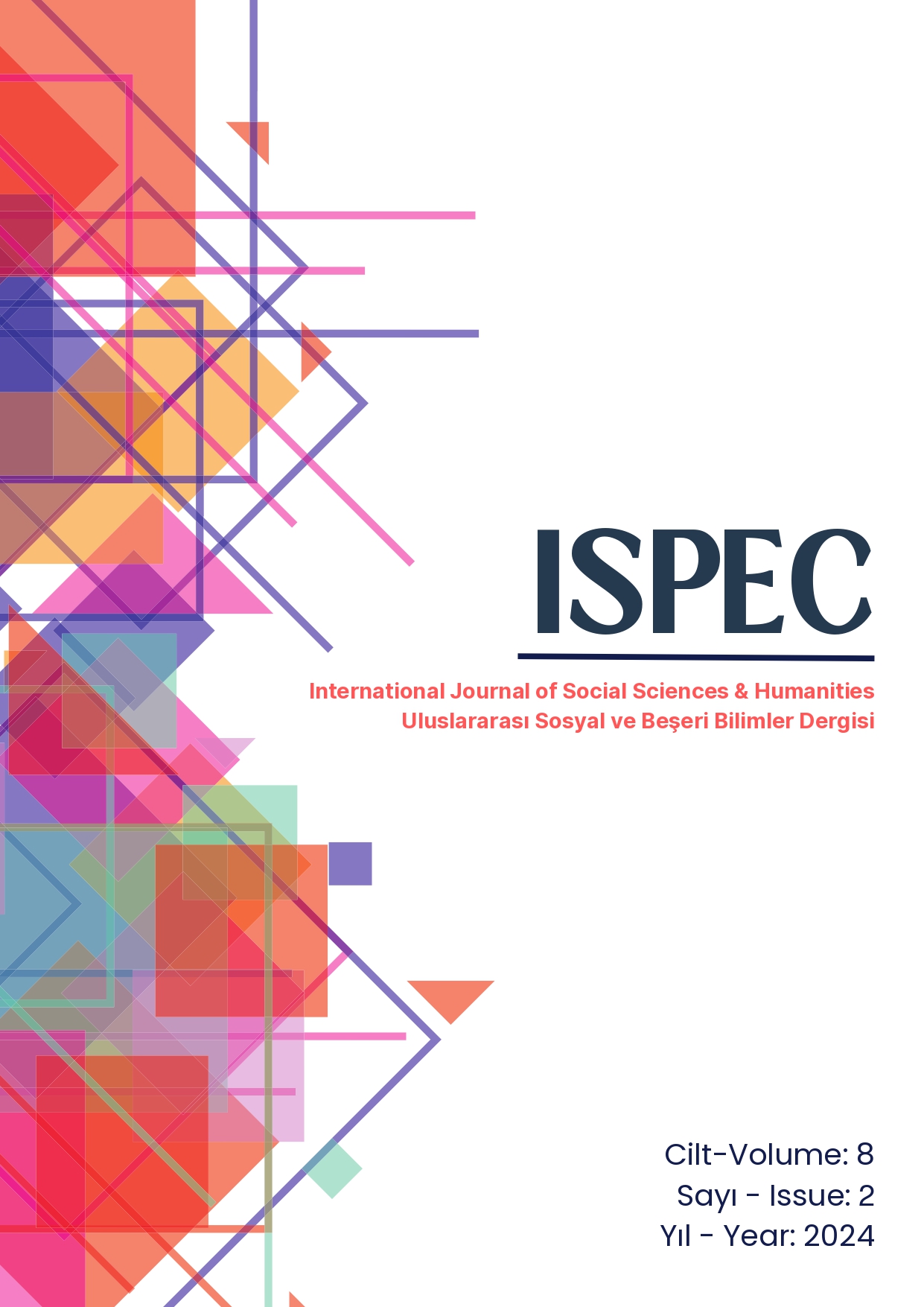Elektronik Sporlarda Teknolojik İnovasyonlar Ve Yönetim
DOI:
https://doi.org/10.5281/zenodo.12192158Anahtar Kelimeler:
E-spor- teknolojik inovasyon- izleyici deneyimi- pazarlama- yasal çerçeveÖzet
E-sporlar, çağdaş dijital kültürün önemli bir parçası haline gelmiş ve bu alandaki disiplinler arası etkileşimler, stratejik ve teknolojik rolleriyle dikkat çekmektedir. Bu çalışma, e-sporların tanımını, kapsamını ve ilgili teknolojik inovasyonları ele almakta; ayrıca takım yönetimi, izleyici deneyimleri, etkinlik yönetimi, pazarlama ve marka yönetimi, veri analitiği, sanal ve artırılmış gerçeklik uygulamaları, medya ilişkileri ve yasal çerçeveler gibi çeşitli yönlerini incelenmektedir. Araştırmanın amacı, e-sporların çok boyutlu yapısını detaylı bir şekilde inceleyerek, bu alandaki mevcut ve potansiyel stratejileri ortaya koymaktır. Araştırma, nitel araştırma yöntemleri kullanılarak gerçekleştirilmiş olup, birincil ve ikincil kaynak taramaları yapılmıştır. Konuya ilişkin uluslararası bilimsel makaleler, konferans bildirileri, sektörel raporlar ve e-spor organizasyonlarının resmi yayınlarından yararlanılmıştır. Elde edilen bulgular ışığında, e-sporlar dijitalleşme sürecinde kritik bir role sahiptir ve bu alanın yönetiminden, pazarlamasına kadar geniş bir yelpaze önemli fırsatlar sunmaktadır. Teknolojik inovasyonlar, izleyici deneyimlerini zenginleştirirken, etkinlik yönetimi ve medya ilişkileri e-sporların küresel çapta etkileşimini artırmaktadır. Ayrıca, e-sporlar, özellikle genç ve teknoloji meraklısı nüfusu hedef alarak markalar için yeni pazarlama kanalları açmaktadır. Bu araştırma, e-spor sektörünün daha iyi anlaşılması ve kapsamlı bir şekilde ele alınması için temel bir kaynak oluşturmayı hedeflemekte ve gelecekteki çalışmalara yön verecek veriler sunmaktadır.
Referanslar
Acir, E. (2019). Video games, virtual reality and augmented reality applications in tourism promotion and marketing. 9th Advances in Hospitality and Tourism Marketing and Management Conference.
Bahrololloomi, F., Klonowski, F., Sauer, S., & Horst, R. (2023). E-sports player performance metrics for predicting the outcome of League of Legends matches considering player roles.
Brown, K. A., Billings, A. C., Murphy, B., & Nabi, R. L. (2018). Intersections of fandom in the age of interactive media: eSports fandom as a predictor of traditional sport fandom. Communication & Sport.
Cacho-Elizondo, S., Álvarez, J. D. L., & De la O, M. P. (2020). The emerging esport market: Analyzing the impact of virtual and augmented reality. Chinese Business Review.
Cumming, D. (2018). Understanding the experience of Australian eSports spectatorship. DiGRA Conference.
Fenton, A., Chadwick, S., & Miah, A. (2020). Virtual reality and sports: The rise of mixed, augmented, immersive, and esports experiences. 21st Century Sports: How Technologies Will Change Sports in the Digital Age.
Freeman, G., & Wohn, D. Y. (2017). eSports as an emerging research context at CHI: Diverse perspectives on definitions. Proceedings of the 2017 CHI Conference on Human Factors in Computing Systems
Gawrysiak, J., Burton, R., Jenny, S., & diğerleri. (2020). Using esports efficiently to enhance and extend brand perceptions–A literature review. Physical Culture and Sport Studies and Research.
Giakoni-Ramírez, F., Duclos_Bastías, D., & diğerleri. (2021). Sponsoring eSports Strategies: Brand Image and Attraction Sponsors. Turkish Online Journal of Design, Art and Communication.
Hölzle, K., Kullik, O., Rose, R., & diğerleri. (2022). The digital innovation ecosystem of eSports: a structural perspective. In Handbook on Digital Innovation. Edward Elgar Publishing. DOI: 10.4337/9781839107184.00046
Kalynets, K., & Krykavskyy, V. (2022). Marketing solutions to promote branding in eSports. Technology audit and production reserves.
Kokkinakis, A. V., Demediuk, S., & Nölle, I. (2020). Dax: Data-driven audience experiences in esports. Interactive Media Experiences.
Leon, M., Hinojosa-Ramos, M. V., León-Lopez, A., & Belli, S. (2022). eSports Events Trend: A Promising Opportunity for Tourism Offerings. Sustainability, 14(21)
Malhotra, R. K. (2018). Branding in eSports: An empirical analysis of the specifics of public relations compared to traditional sports. Psychology and Education.
Marelić, M., & Vukušić, D. (2019). E-sports: Definition and social implications. Exercise and Quality of Life Journal.
Nagorsky, E., & Wiemeyer, J. (2020). The structure of performance and training in esports. PloS one
Nufer, G., & Mariot, D. (2022). Branding in eSports: An empirical analysis of the specifics of public relations compared to traditional sports. IUP Journal of Brand Management.
Olsen, A. H. (2015). The evolution of eSports: An analysis of its origin and a look at its prospective future growth as enhanced by Information Technology Management tools.
Peng, Q., Dickson, G., Scelles, N., Grix, J., & Brannagan, P. M. (2020). Esports governance: Exploring stakeholder dynamics. Sustainability, 12(19), 8270. DOI: 10.3390/su12198270
Pradhan, S., & Abdourazakou, Y. (2020). “Power ranking” professional circuit esports teams using multi-criteria decision-making (MCDM).
Rodrigues, E., & Filgueiras, E. (2020). How do video game aspects define competitive gaming streams and spectatorship? Conference on Human Factors in Computing Systems – Proceedings
Saiz-Alvarez, J. M., Palma-Ruiz, J. M., Valles-Baca, H. G., & diğerleri. (2021). Knowledge management in the esports industry: sustainability, continuity, and achievement of competitive results. Sustainability, 13(19), 10890. DOI: 10.3390/su131910890
Schubert, M., Drachen, A., & Mahlmann, T. (2016). Esports analytics through encounter detection.
Shinohara, T. (2020). The road to a common framework for the esports society through the lens of international law. International Journal of Law and Information Technology.
Shynkaruk, O., Byshevets, N., Iakovenko, O., & Serhiyenko, K. (2021). Modern approaches to the preparation system of Masters in eSports.
Southern, N. (2017). The rise of eSports: A new audience model and a new medium. California State University.
Stein, V., & Scholz, T. M. (2016). Sky is the Limit–Esports as Entrepreneurial Innovator for. In Interdisciplinarity in Social and Human Sciences.
Viscione, I., & D'Elia, F. (2019). Augmented reality for learning in distance education: The case of e-sports. Journal of Physical Education and Sport.
Wagner, M. G. (2006). On the Scientific Relevance of eSports. International Conference on Internet Computing
Wagner, M. G. (2006). On the Scientific Relevance of eSports. International conference on internet computing.
Walton, D. R., Lower-Hoppe, L. M., & Diğerleri. (2020). Do esports classify as intercollegiate sport? Legal analysis of Title IX. Journal of Issues in Intercollegiate Athletics.
Zagnoli, P., & Radicchi, E. (2022). Disruptive Technologies on Sport Event Marketing: New Centrality of Digital Communication. Marketing Analysis in Sport Business.
Zhang, J., & Dai, G. (2024). Mechanisms of Emotional Experiences of Online Spectators of E-Sports Events From the Perspective of Interactive Ritual Chain. Communication & Sport.
İndir
Yayınlanmış
Nasıl Atıf Yapılır
Sayı
Bölüm
Lisans
Telif Hakkı (c) 2024 ISPEC Uluslararası Sosyal ve Beşeri Bilimler Dergisi

Bu çalışma Creative Commons Attribution-NonCommercial-NoDerivatives 4.0 International License ile lisanslanmıştır.






